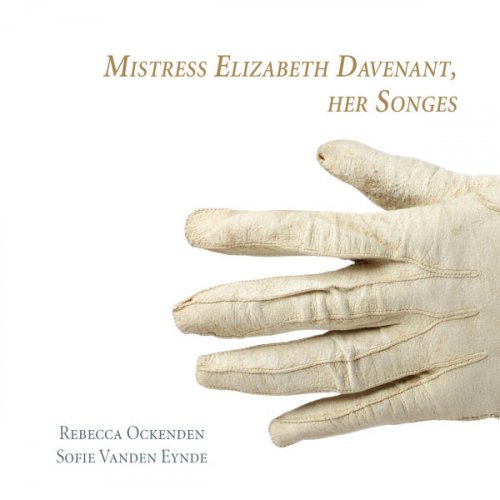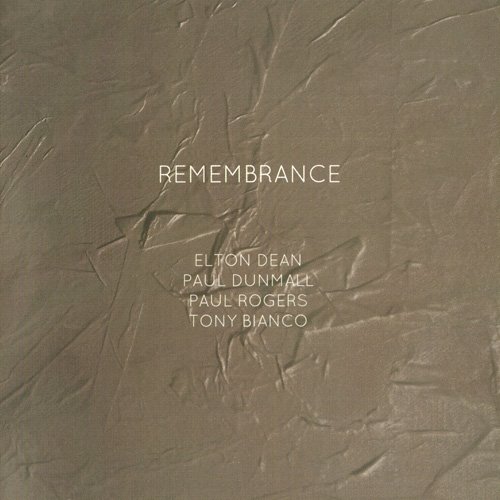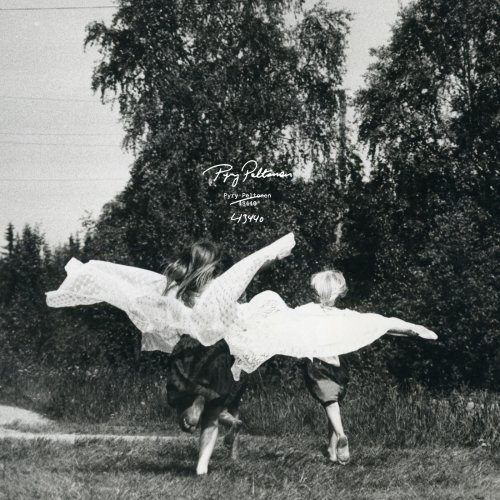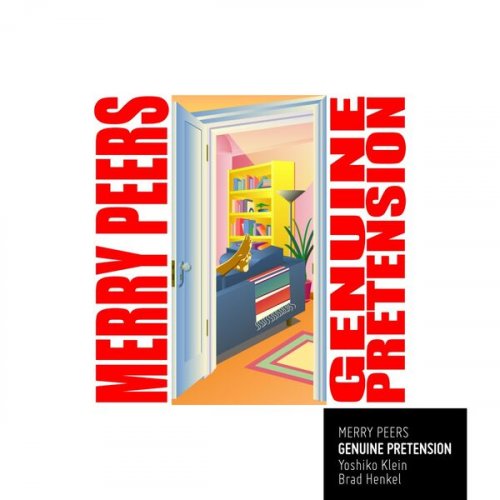Rebecca Ockenden, Sofie Vanden Eynde - Mistress Elizabeth Davenant, Her Songes (2011)

Artist: Rebecca Ockenden, Sofie Vanden Eynde
Title: Mistress Elizabeth Davenant, Her Songes
Year Of Release: 2011
Label: Ramée
Genre: Classical
Quality: flac lossless +Booklet
Total Time: 01:08:37
Total Size: 249 mb
WebSite: Album Preview
TracklistTitle: Mistress Elizabeth Davenant, Her Songes
Year Of Release: 2011
Label: Ramée
Genre: Classical
Quality: flac lossless +Booklet
Total Time: 01:08:37
Total Size: 249 mb
WebSite: Album Preview
---------
01. Heare My Prayer O God
02. Woodes, Rocks & Mountaines
03. Galliard (My Lady Mildemays Delight)
04. Cloris Sighd and Sang and Wept
05. Almain
06. When Nights Black Mantle (From Pamphilia to Amphilanthus)
07. Go Happy Hart
08. Dropp Drop Goulden Showrs
09. Pavan
10. If When I Dye
11. Cease O Cease This Hum of Greeving
12. How Well Poore Hart (From Pamphilia to Amphilanthus)
13. Musicke Thou Soule of Heaven
14. I Prithee Leave Love Me No More
15. Carman's Whistle
16. Like to the Damaske Rose
17. Sleepe Sleep Though Greife Torment thy Body
18. Come You Prettie False Eyd Wanton
19. Whether Away My Sweetest Deerest
20. Good Now Bee Still (From Pamphilia to Amphilanthus)
21. Have You Seene the White Lilly Grow
22. Eyes Gaze No More
23. Shall I Weepe or Shall I Singe?
24. Galliard
25. Care Charming Sleepe
26. My Strength Hath Faild
This fascinating collection represents in a fittingly symbolic manner a cusp, a fulcrum in several different ways. It is to do with the emancipation of feminine creative energy, and also to do with a dynamic shift in society during the turbulent seventeenth century – and, vitally, to do with creativity in the sphere of poetry, music and performance. The steady emancipation of women was led from noble families, indeed led from royalty itself – for The Virgin Queen Bess paved the way, and in style. Elizabeth Davenant, Oxford-based and flourishing in the mercurial 1620s, came of a most interesting family of merchant-class origins. Her father, John Davenant, rose to become not only chief vintner, but also Mayor of Oxford. Elizabeth’s brother was later to become the most famous family member as Sir William Davenant, a playwright of considerable reputation Elizabeth Davenant’s music manuscript has been compiled in Oxford around 1624. The Royal Court of Charles I had come to move its focus from London – with its plagues and fumes and noise and increasingly intense pressure from the religious – to Oxford, which became the focal point for leading artistic taste.
Elizabeth’s manuscript foreshadows all of that: what is now an obscure private collection, was then part of the avant-garde. It is an eclectic collection, representing an excellent overview of changing taste in the 1620s. It looks back to the ‘golden age’ of the lute-song, with works by Thomas Campion, to the generation that followed in songs by Robert Johnson that have a strong theatrical context, and forward to the new generation of Cavalier Poets such as Herrick, and their contemporary composers, John Wilson and Henry Lawes. We cannot know the extent to which Elizabeth Davenant was involved with the choice: was it written by her music tutor, or written to order? However, it is clear that the songs were consciously intended for a talented young lady. Looking at some of the music a little more closely, one finds at times quite extraordinary complex ideas in the poetry, reflected potently in the settings. The high degree of vocal ornamentation of many of the items found in the collection suggests an advanced awareness of vocal performing styles of the 1620s. Indeed it suggests that Elizabeth Davenant was well capable of performing in this virtuoso manner (why otherwise would the scribe have included so much vocal ornamentation?), and it also suggests that the Oxford audience to whom she performed was sufficiently discriminating to appreciate such vocal dexterity.
![Sam Most - But Beautiful (2025) [Hi-Res] Sam Most - But Beautiful (2025) [Hi-Res]](https://img.israbox.com/img/2025-12/12/n19esmi2zxvr716zw8citn0dv.jpg)



![Coco Chatru Quartet - Lost Christmas (2025) [Hi-Res] Coco Chatru Quartet - Lost Christmas (2025) [Hi-Res]](https://www.dibpic.com/uploads/posts/2025-12/1765719561_coco-chatru-quartet-lost-christmas-2025.jpg)



